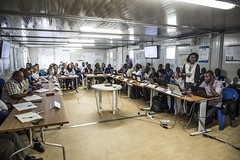Saving without Barriers: Lessons from the Retirement Savings Laboratory’s Pilot Projects
This document presents the Retirement Savings Laboratorys (Laboratory) main findings, lessons, and challenges from several pilot interventions aimed at promoting voluntary pension savings among independent and low-income workers in Chile, Colombia, Mexico and Peru.



